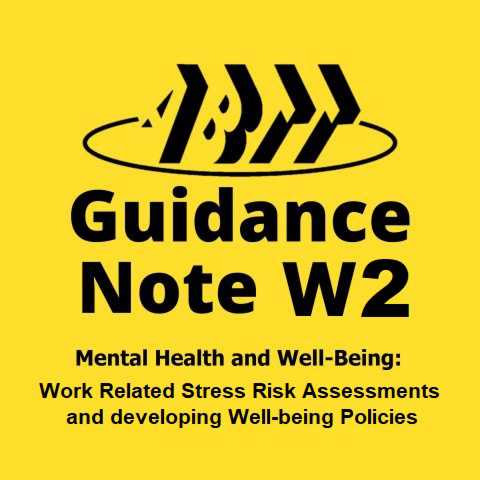ABTT launches guide on mental health & well-being
- Details

Guidance Note W2 is launched to coincide with International Stress Awareness Week 7-11 November 2022.1 The guide provides guidance for risk assessing stress in the workplace. It is closely aligned with the HSE’s current advice provided as part of the Working Minds campaign2 . The guidance note offers concise guidance and a step-by-step methodology by which to begin risk assessing work related stress.
Guidance Note W2 is part of the Code of Practice for the Theatre Industry in the UK which is produced by the ABTT with the support of the national Theatre Safety Committee and which is recognised by the HSE as an Established Standard.
Work-related stress is a major cause of occupational ill health and can cause severe physical and psychological conditions in workers. It can also lead to poor productivity and human error, increased sickness absence, increases in accidents, high staff turnover and poor performance.
HSE statistics show that work-related stress is a significant issue with more than 15.4m working days lost as a result of stress, anxiety or depression. This equates to an estimated cost of £5.2 billion.3 Stress, anxiety and depression are the number one reasons for work related illness in the UK.
The AAPTLE 2021 UK Backstage Well-being survey provided significant evidence of a higher than average prevalence of mental ill health in technical and production practitioners working in theatre and live performance. Guidance Note W2 provides support for workplaces in assessing the risk of work-related stress and for working towards methods by which reduce it.
ABTT co-chair Mig Burgess Walsh comments: “ It was a real pleasure to spend my summer researching and working on this very hands-on proactive guidance note packed with practical advice and guidance on identifying hazards and reducing risks related to work related stress. Risk assessments are a day-to-day part of our life in industry, we are comfortable and familiar with them. I hope we can use methods which we know and are confident dealing with in identifying hazards and accessing risk related to stress at work.
“I hope this guidance note will be of significant assistance for organisations as they work on improving mental health and well-being in the workplace. The subject of mental health and well-being can often feel vast and that no one-size-fits-all solution is available. It is easy to feel the need to “put off” working on policies in this area. This guidance note presents the task in a way with which we are all familiar, working with the risk assessment method we deal with day-to-day. The guidance simply provides a methodology and encourages you to make those vital first steps in creating a better culture of well-being in your workplace. We need to do this now more than ever.”
Robin Townley, ABTT chief executive, adds: “The HSE’s Working Minds campaign reminds us that ‘the law requires all employers to prevent work related stress to support good mental health in the workplace’. The ABTT is incredibly grateful to our co-chair, Mig Burgess Walsh, for leading on this area of work and producing the latest Guidance Note that offers concrete guidance to organisations working in theatre and live performance.”


















